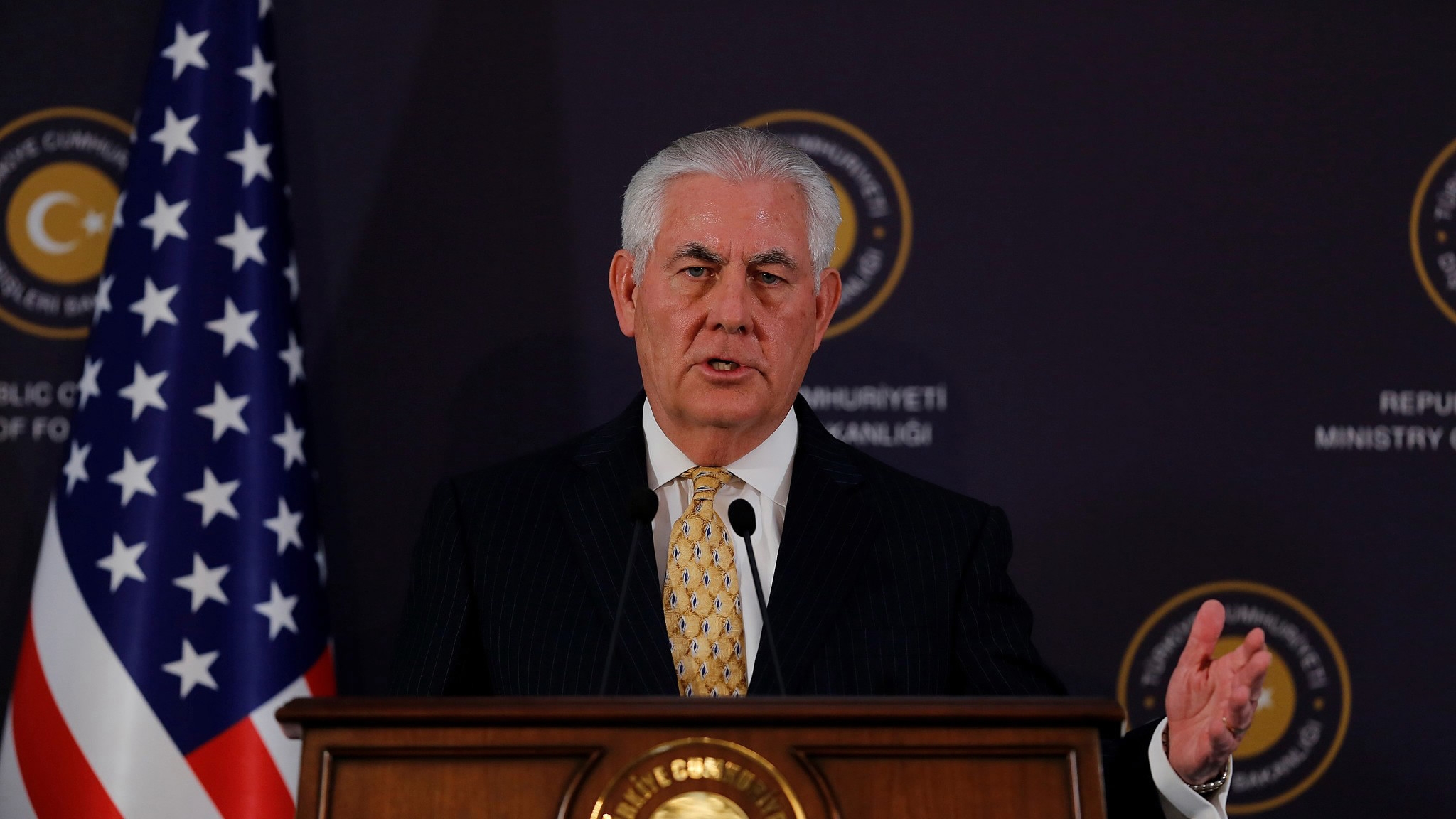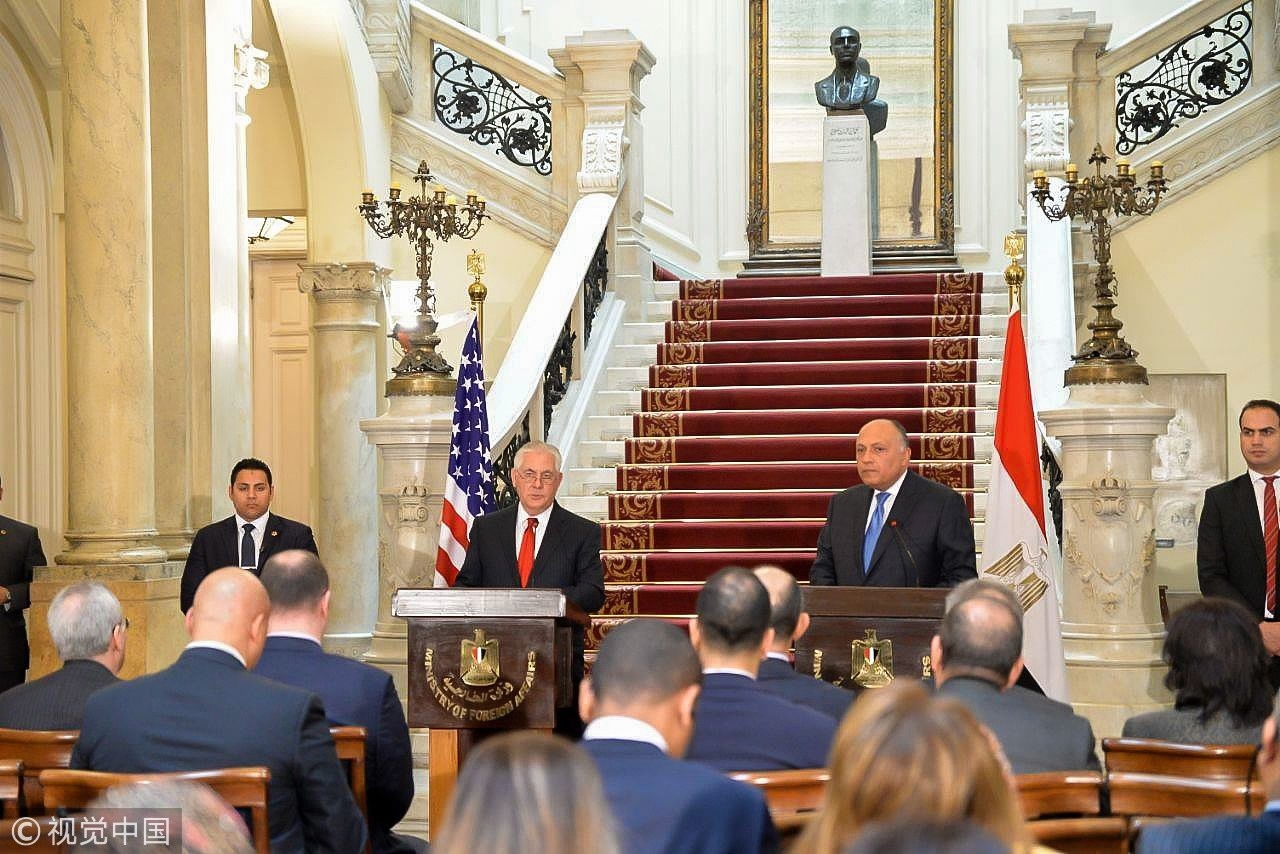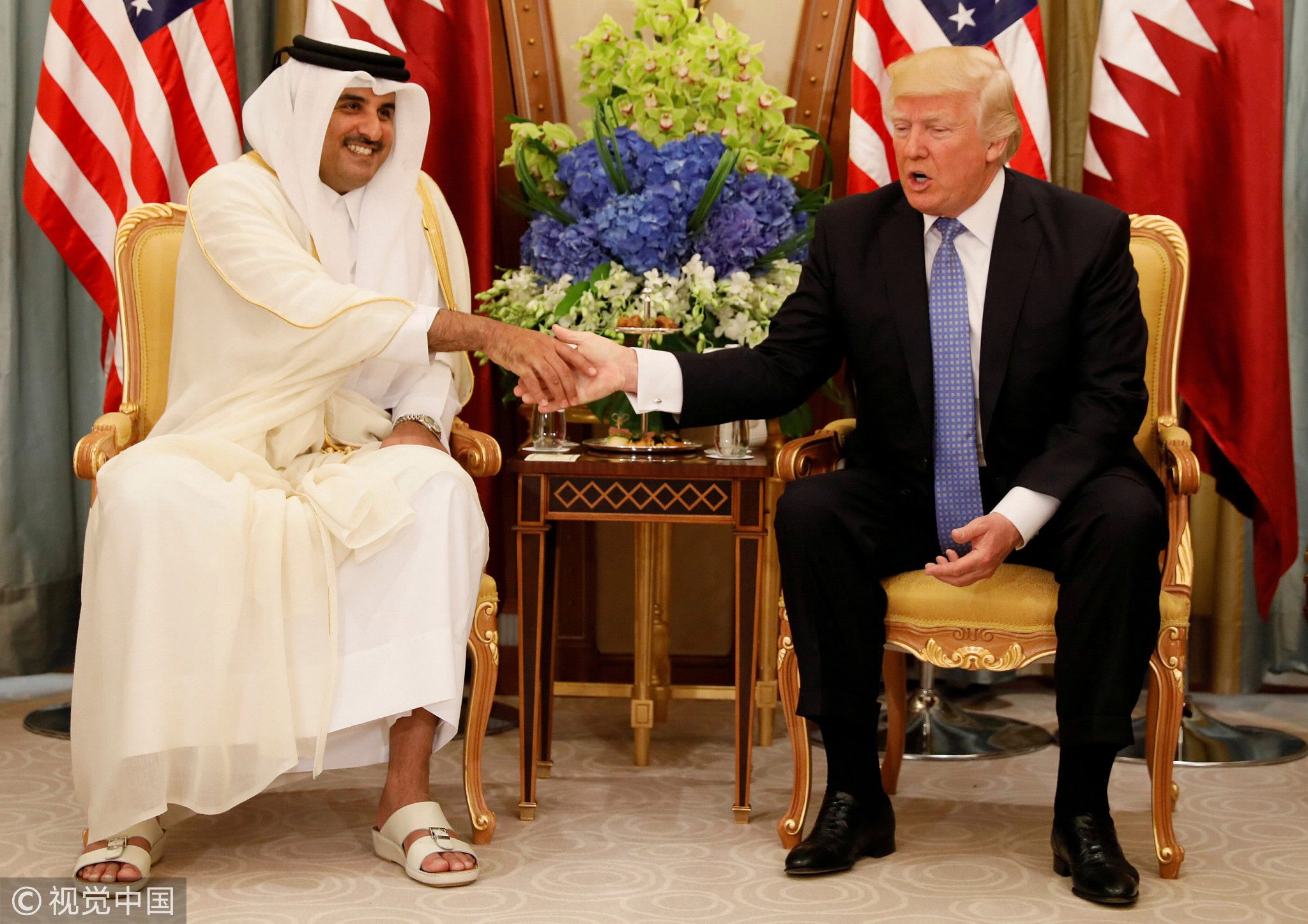
Opinions
23:09, 18-Feb-2018
Opinion: The US: an ‘impartial’ mediator in the Middle East with a lot of self-interest
Guest commentary by Zhou Rong

One of the most important issues for US Secretary of State Rex Tillerson during his Middle East Trip was to address the dispute between the six Gulf Cooperation Council (GCC) countries as he went to Kuwait.
Tillerson urged a resolution to the Gulf crisis as the dispute between the countries in the region nears the eight-month mark. Just a couple of days before, at the inaugural round of the US-Qatar strategic dialogue meeting in Washington, DC, on Tuesday, he said the US remains as concerned today as it was at the outset of the dispute. The US has realized that the standoff has had direct negative consequences, economically and militarily, for Washington.
The US is now trying to advise all parties to minimize inflammatory rhetoric and exercise restraint to avoid a further escalation. The Americans also think a united GCC bolsters its effectiveness on many fronts, particularly on countering terrorism, defeating ISIL, and countering the spread of Iran’s “malign” influence.

US Secretary of State Rex Tillerson and Minister of Foreign Affairs of Egypt Sameh Shoukry hold a joint press conference at Foreign Ministry following their meeting in Cairo on Feb.12, 2018. /VCG Photo
US Secretary of State Rex Tillerson and Minister of Foreign Affairs of Egypt Sameh Shoukry hold a joint press conference at Foreign Ministry following their meeting in Cairo on Feb.12, 2018. /VCG Photo
Several Gulf powers including Saudi Arabia, UAE, Egypt and Bahrain have cut diplomatic ties with Qatar since June 2017, and until now, there is no sign that they will be restored. The four countries also imposed a land, sea and air blockade after accusing Qatar of supporting "terrorism" and "extremism."
Qatar has rejected the accusations and has moved quickly to deepen its ties with other countries in the region – such as Iran, Oman and Turkey – and those further afield, including the US.
The rift has put Washington on shaky diplomatic ground, with the Trump administration resistant to siding completely with Saudi Arabia because of American interests in Qatar.
At the beginning, the US was more likely to support the Saudis and the UAE. Much of this is based on a mutual hate of the Muslim brotherhood of Egypt who Qatar is seen as supporting. The US also distrusts Qatar’s good relations with Iran.

Dubai , UAE. /VCG Photo
Dubai , UAE. /VCG Photo
But Qatar has also been quick to highlight its support for the US economy, and American attitudes have changed very quickly accordingly. The US no longer directly supports Saudi Arabia anymore, but is casting itself more in a mediator-type role. However, this mediating role has been difficult to pull off as the whole world saw Tillerson's recent attempt to mediate between Qatar and the Gulf countries trampled on by public pronouncements made by President Donald Trump. Trump's initial support of Riyadh and condemnation of Qatar put him at odds with both his most senior diplomats and military commanders. Within days of Trump tweeting out support for the blockade against Qatar, Tillerson called on Saudi Arabia and its allies to ease it.
However, the reality is America can’t afford to offend either Qatar or Saudi Arabia.
Saudi Arabia is one of the biggest foreign investors in the United States, while Qatar was already investing "more than 100 billion US dollars in America's economy including 10 billion US dollars earmarked for infrastructure." The US also has military interests in both countries with large bases in both.

Qatar's Emir Sheikh Tamim Bin Hamad Al-Thani meets with US President Donald Trump in Riyadh, Saudi Arabia on May 21, 2017./VCG Photo
Qatar's Emir Sheikh Tamim Bin Hamad Al-Thani meets with US President Donald Trump in Riyadh, Saudi Arabia on May 21, 2017./VCG Photo
Recent statements by the Qatari foreign minister indicated that his country's investment "could be more if the blockade by Saudi Arabia and UAE was ended." Also, Qatar intends to expand the American airbase that currently houses some 10,000 US military personnel.
In order to please Qatar, Tillerson said the country has made “significant progress to improve efforts to combat terrorism."
"Qatar is a strong partner and longtime friend of the United States,” he said.
With the Qataris hosting the Al Udeid Air Base, which is home to US Air Force Central Command and critical not just to US military operations in the Middle East, but also to “President Trump’s South Asia strategy.”
Tillerson has called on the Gulf countries including Saudi Arabia and the United Arab Emirates (UAE) to resolve their dispute with their neighbor, saying that regional stability is at stake. Although a more honest approach might be to admit it is US interests that are at stake.
(Professor Zhou Rong is associated with the Chongyang Finance Institute of Renmin University of China. The article reflects the author's opinion, and not necessarily the views of CGTN.)

SITEMAP
Copyright © 2018 CGTN. Beijing ICP prepared NO.16065310-3
Copyright © 2018 CGTN. Beijing ICP prepared NO.16065310-3